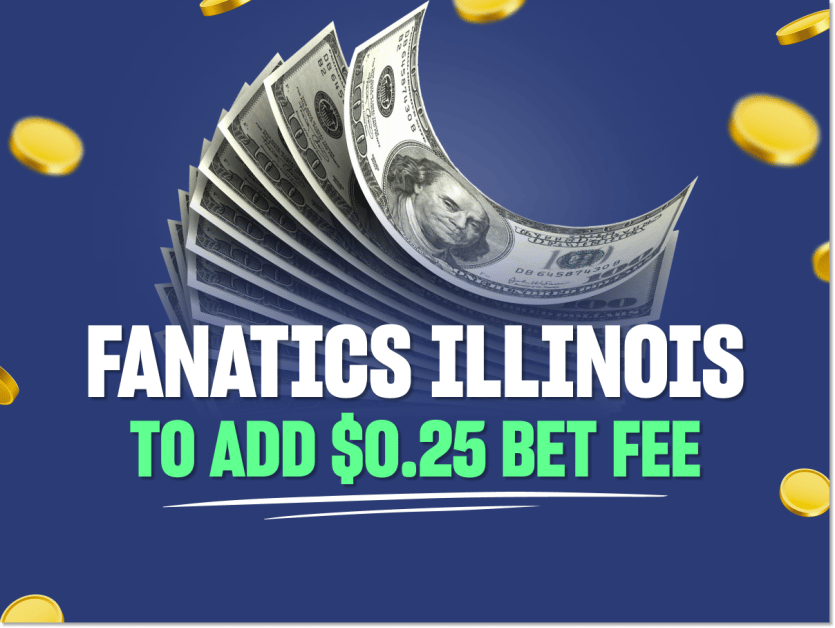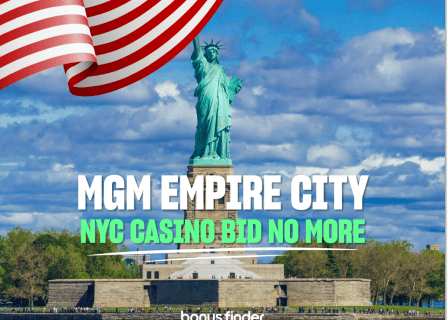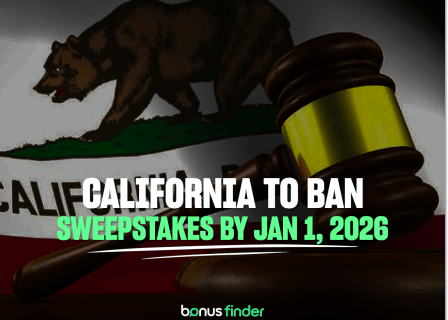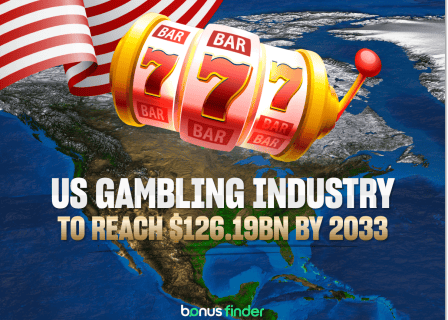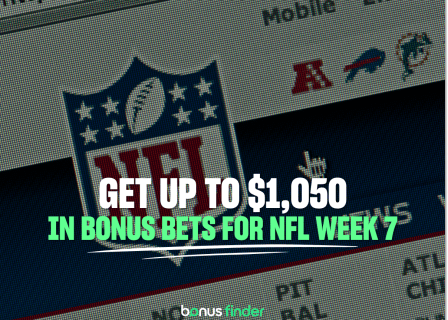Fanatics join FanDuel and DraftKings to charge a wager fee in Illinois due to tax hikes
BonusFinder, a casino bonus comparison site, gives you the latest on everything happening in Illinois: with fees per bet to be charged and taxes being hiked.
Fanatics are the latest operator to charge a $0.25 fee to all sports wagers placed in Illinois, joining FanDuel and DraftKings to add a fee to bets placed in the state.
The decision comes after lawmakers in the state passed a new tax that sportsbooks must pay $0.25 per bet on the first 20 million places in the state annually, then $0.50 after that.
In response to the news, a Fanatics spokesperson was quoted as saying the decision was made because it ‘reflects the high cost of operating’ in Illinois.
Both FanDuel and DraftKings have already announced that they will be charging a $0.50 fee on every wager placed in the state of Illinois from 1 September this year.
The reason why Fanatics are charging the smaller fee is because they’re not expected to reach the 20 million bets per year threshold.
Illinois betting tax hikes
Gov. Pritzker, who signed the law on 16 June and with it taking into effect on 1 July, hopes the new tax will raise $36m in tax revenue for the state.
That figure, which was reported by the Chicago Tribune, is due to Illinois being the second-most lucrative sports betting market in 2024.
Revenue jumped 22.8% to $1.1bn in the year to April 2025 making it the second-highest yearly total in the country, only behind New York.
That growth comes in spite of a tax hike last year when a progressive tax system of up to 40% was introduced, a huge increase on the previous rate of 15%.
Therefore, the state generated $268.3m in sports betting taxes for the same period, a jump of 75% year-on-year (YoY).
All of this means that the effective tax rate for the top operators in the state comes to around 57% to 60%, with the higher figure being hit by those companies that hit the 20 million mark for accepted wagers.
As such, that puts Illinois as the harshest tax standard state in the US – outdoing New Hampshire, New York and Rhode island who operate at a 51% rate.
Industry response
Unsurprisingly, the industry is less than impressed about the sudden hike in taxes.
The Sports Betting Alliance, who are made up of major iGaming companies including Fanatics, FanDuel and DraftKings, released a statement strongly condemning the news.
They said: “For the second consecutive year, the Illinois legislature chose to balance its budget with a crippling tax on legal online sports betting operators and their million plus Illinois customers – this time with no warning and no consideration of the devastating impact this would have on the legal market.
“It’s extremely disappointing that the legislature chose to pass this tax and disregard the $1bn in new revenue that a regulated and consumer-protected iGaming market would provide Illinois – allowing instead to let the current unregulated iGaming market that lacks any real consumer protections to thrive.
“This is not the end of this conversation. We will continue to fight this discriminatory tax alongside our customers – both right now in Illinois and in any state that considers these harmful tax changes in the future.”
The SBA also referenced the fact that 76,000 Illinois customers sent emails or tweets to their representatives, asking them to stop this tax.
Flutter, the world’s biggest iGaming company, owns FanDuel and the company’s CEO Peter Jackson warned of people moving to the black market because of the high tax rates in the state:
“It is important to recognize that there is an optimal level for gaming tax rates that enables operators to provide the best experience for customers, maximize market growth and revenue for states over time.
“We are disappointed that the Illinois transaction fee will disproportionately impact lower wagering recreational customers while also punishing those operators who have invested the most to grow the online regulated market in the state,” argued Jackson.
“We also believe the introduction of the Illinois transaction fee will likely motivate some Illinois-based customers to bet with unregulated operators.
“These operators do not contribute tax revenue to the state, will not collect the newly announced transaction fee and do not offer the same levels of customer protection that regulated operators provide.”
DraftKings Co-Founder and CEO Jason Robins also commented on the decision, saying: “Illinois has been an important part of our growth, and we’re proud to have contributed meaningfully to the state through tax revenue, job creation and a sustained investment in responsible gaming tools and resources.
“We are disappointed that Illinois policymakers have chosen to more than triple our tax rate over the past two years, and we are very concerned about what this will do to the legal, regulated industry.
“Meanwhile, Illinois continues to fuel the rapidly growing illegal industry, which pays no taxes or fees and provides none of the consumer protections that regulated operators offer.”
Alongside the three bookmakers above, there are seven other bookmakers who are licensed to operate in Illinois. They are: bet365, BetMGM, BetRivers, Caesars, Circa, ESPN Bet and Hard Rock Bet. None of these operators have announced plans to pass on a surcharge to their customers.
However, one thing that looks likely to happen is all these companies are likely to reduce their number of offers and set the odds as less favorable for customers.
So, even if Illinois natives decide to move away from Fanatics, FanDuel or DraftKings – customers will feel the pinch in the regulated market.
The impact
Illinois is the only state with a per-bet sports wagering tax. Throw in the fact that the state operates at a higher tax rate than anyone else and it’s easy to see why there’s been such a backlash by businesses and bettors alike.
The threat of the unregulated market growing in popularity is very real. With so many taxes at every stage of betting, including on gambling winnings, this one seems a step too far from Gov. Pritzker. Illinois needs to reconsider their extreme tax rates if they’re to continue hosting a growing and regulated iGaming market.

